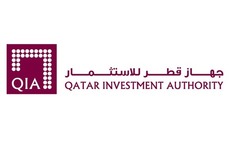
Profile: Advantage Partners' Richard Folsom
For the past 30 years Advantage Partners co-founder Richard Folsom has enjoyed a front-row seat on the inner workings Japan's corporate world - here he shares his insights.
When Richard Folsom, co-founder and representative director of Advantage Partners, first passed through Japanese immigration control in 1980, his motivations extended far deeper than business. Folsom had been sent as a missionary by the Mormon Church - a role he volunteered for without knowing where he would be sent, or that the destination would have such a profound impact on his life and career.
"I didn't anticipate that I would be sent to Japan - in fact I had lived in Germany for a couple of years as a child and spoke a reasonable amount of German, so I thought they might send me there," recalls Folsom. "But I guess they figured if I could learn German, I could learn Japanese too - so it was destiny if you want to call it that."
Sent to the northernmost island of Hokkaido, Folsom had plenty of opportunity to immerse himself in Japan's language and culture. The experience impressed him so much that on returning to college two years later, he decided to add Japanese as a major to his economic studies. By the time Folsom graduated in 1984 his mind was set.
"When I graduated from college I started looking for a job that would bring me back to Japan," he says. "I didn't look for anything in the States - all I wanted was to come back to Japan."
Light bulb
It was Bain & Company that would be his ticket back. The consulting firm was in the process of populating its Tokyo office - which it had opened only two years earlier - and was in search of young Japanese-speaking Americans who were just coming out of college. Folsom fit the bill and by 1985 he was back in Japan.
Folsom would stay with Bain for eights years in total - including a two-year stint at Wharton School of the University of Pennsylvania where he read his MBA. It was at Bain that Folsom met his eventual business partner and Advantage Partners co-founder, Taisuke Sasanuma.
"We were at Bain together from 1986 to 1988 and in that timeframe we got know each other and work on a number of projects together, and that was when we began to discuss our future ambitions and plans for starting our own business," says Folsom.
It was during that period - the boom time of the mid to late 1980s - that Folsom and Sasanuma were first exposed to the concept of private equity through Bain Capital, a new investment firm set up by a group of former Bain & Company consultants in 1984. Folsom recalls how he and Sasanuma first got to meet the founders during a worldwide employee meeting.
"I remember us sitting in one of those worldwide employee meetings combined with Bain Capital and listening to Mitt Romney and his partners present some of their most recent success cases," says Folsom. "Taisuke and I just looked at each other and this proverbial light bulb went off in our heads. We thought: ‘This could be a great business if we could bring it to Japan.'"
Folsom and Sasanuma established Advantage in December 1992 but it was another five years before they launched their first fund. The reason for the delay was that two major pieces of legislation had prevented buyout funds from being formed. First, the Antitrust Law forbade financial investors from owning a majority stake in any business. Second, there were provisions stopping any funds from nominating members to the boards of portfolio companies.
However, with the bursting of Japan's economic bubble in 1991, Folsom and Sasanuma calculated that it would only be a matter of time before the rules changed and private equity would be made possible. In the meantime, the pair put PE on a back burner and sought out other opportunities.
In the early years, the pair started two businesses: a value-added tax (VAT) reclamation service for corporations looking to recoup taxes on various businesses expenses, primarily in the EU, which was sold to US firm PRG-Schultz; and later an insurance brokerage and risk management business, which would eventually list in Japan.
By 1997, the regulatory changes Folsom and Sasanuma were waiting for finally came through. Private equity buyouts were possible in Japan, and it was time for Advantage Partners to raise a fund. Folsom recalls the challenges that came with raising a first vehicle in a country where the concept of private equity was still alien. They were only able to gain momentum once the PE firm managed to get two of Japan's largest trading houses on their books - Marubeni and Mitsubishi Trading Corporation.
"Both of them had people in their team who had spent time in New York or London, had been involved in equity and debt finance in buyout deals, and had recently returned to Japan looking to see if the environment was ripe in Japan for this kind of business as well," says Folsom. "So they understood what we were talking about and it clicked with them immediately"
Small beginnings
With Marubeni and Mitsubishi on board, Advantage was able to raise more commitments from other Japanese institutions affiliated with the two trading houses. Fund I ended up with a corpus of JPY3 billion (around $30 million).
"It was a small fund but I don't think anyone else was doing what we were doing at that time," recalls Folsom. "There were no investments or established deal flow in that period, so in the beginning we were just out there beating the bushes trying to generate deal opportunities."
Five deals came out of that first fund. One that stands out in Folsom's memory is Icreo - the re-branded food business carved out from the US pharmaceuticals firm American Home Products, later Wyeth, and since acquired by Pfizer. Its main product was a premium baby formula competing against products from three major domestic milk producers.
"It turned out to be a perfect small carve-out buyout transaction - we were able to do some financial restructuring, help them in terms of marketing and product strategy, and grow the business over the three-year holding period to generate a 7x exit," says Folsom. "It was a real showpiece for the fund."
Over the ensuing years Advantage went from the strength to strength, raising around $180 million for Fund II and then $500 million for Fund III. Meanwhile, some highly publicized deals boosted the GP's profile - among them was beleaguered general merchandise store and supermarket chain Daiei in which Advantage bought a 23.4% stake with the government-backed Industrial Revitalization Corp. of Japan and Marubeni Corporation in 2005.
Hard times
However, the firm also took some hits. Everyone felt the impact of the global financial crisis and Advantage was no exception when it came to Tokyo Star Bank. The PE firm bought a majority stake in the lender via Fund IV - its largest vehicle at around $2 billion - for JPY170 billion in 2007 but struggled with the asset after the crisis.
Eventually Tokyo Star was surrendered to creditors in 2011 after debts tied to the acquisition went into technical default. Advantage and its co-investors were left with a complete write-off.
"Having to write off Tokyo Star Bank was a real low point for us," says Folsom. "I think investors thought it might be the end of Advantage Partners as it was too big of a loss to overcome - and perhaps we questioned ourselves - but we were determined. We felt what we were doing with our portfolio companies, and the way we were doing it, was still a successful model."
Arguably the PE firm's saving grace was a handful of strong exits that came from the same fund as Tokyo Star; among them Folsom counts coffee shop chain Komeda, sold to MBK Partners last year, and condominium management company United Communities, exited to Tokyu Community around the same time.
"It was the strength of these home-run exits - bringing the fund above sea level and putting us on a trajectory for a reasonable return - that helped us regain the confidence of our LPs," says Folsom. "There were a lot of lessons learned from Tokyo Star. We can't always predict major economic changes, and that was part of it, but certainly we learnt a lot about how we structure and price our investments and how conservative we are on certain projections."
Things have since started to look up for Folsom, Advantage and Japan as a whole. It is now just over a year since the GP reached a $200m close on its bridge fund - the first since Fund IV - and the firm continues to make exits while taking advantage of a gradually improving macroeconomic situation to target new opportunities. Folsom remains cautious but optimistic.
"We have never had a tailwind in our 20 plus years in this market but maybe we are getting some of that today with Abenomics," says Folsom. "However, it remains to be seen."
Latest News
Asian GPs slow implementation of ESG policies - survey
Asia-based private equity firms are assigning more dedicated resources to environment, social, and governance (ESG) programmes, but policy changes have slowed in the past 12 months, in part due to concerns raised internally and by LPs, according to a...
Singapore fintech start-up LXA gets $10m seed round
New Enterprise Associates (NEA) has led a USD 10m seed round for Singapore’s LXA, a financial technology start-up launched by a former Asia senior executive at The Blackstone Group.
India's InCred announces $60m round, claims unicorn status
Indian non-bank lender InCred Financial Services said it has received INR 5bn (USD 60m) at a valuation of at least USD 1bn from unnamed investors including “a global private equity fund.”
Insight leads $50m round for Australia's Roller
Insight Partners has led a USD 50m round for Australia’s Roller, a venue management software provider specializing in family fun parks.







